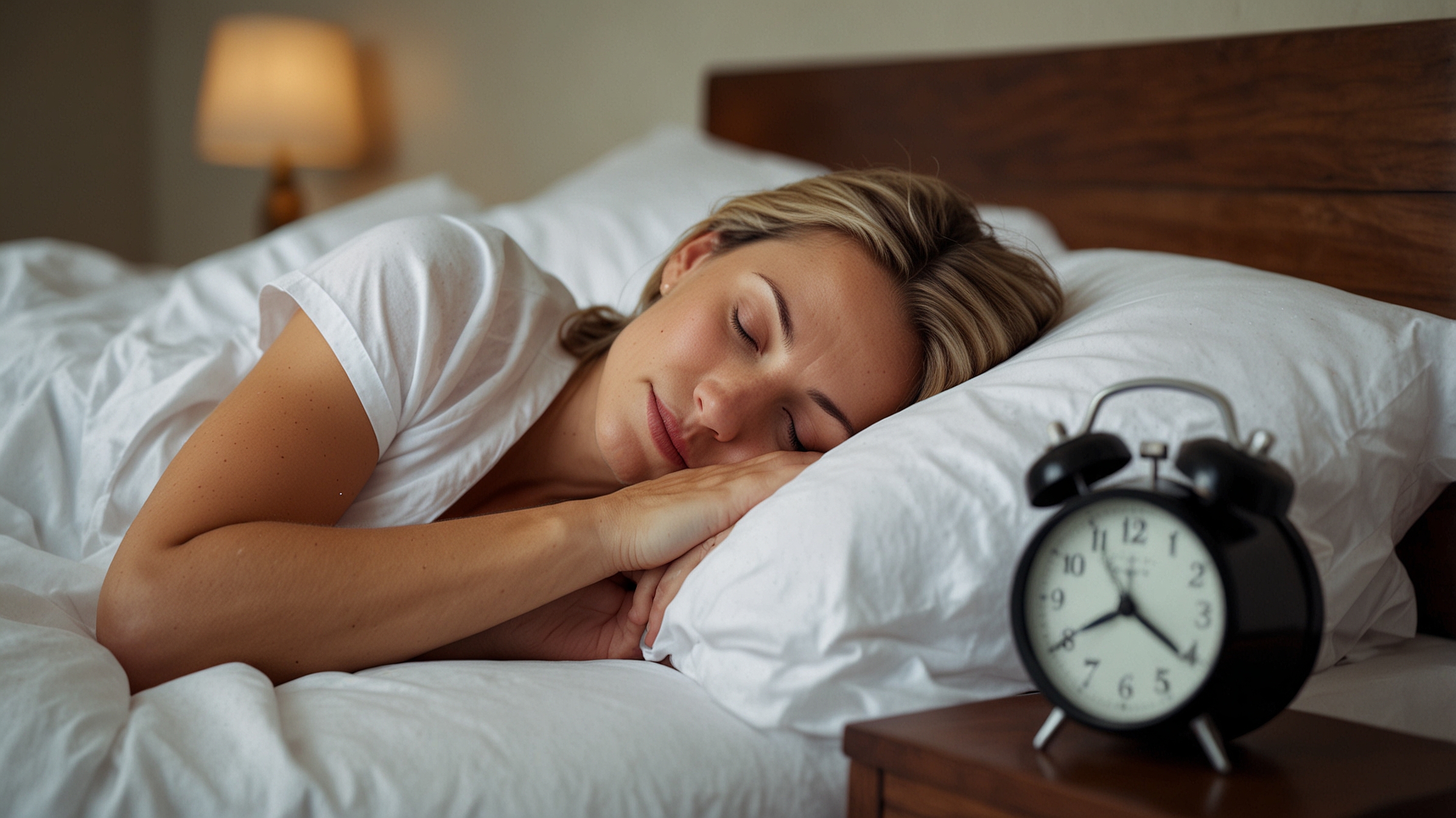In the fast-paced demands of modern life, middle age can often feel like an endurance test. Juggling career pressures, family responsibilities, and personal goals leaves little time for one critical pillar of health: sleep.
Yet, research consistently shows that middle-aged adults—typically those between the ages of 40 and 60—are among the most sleep-deprived groups. And the consequences go far beyond just feeling tired. Chronic sleep deprivation in midlife is linked to a higher risk of heart disease, cognitive decline, weight gain, and mental health challenges.
So why are so many in this stage of life missing out on adequate rest—and what practical steps can be taken to improve it?
The Perfect Storm of Sleep Disruption
For adults in midlife, sleep challenges often stem from a mix of biological, emotional, and lifestyle factors.
Stress and Mental Load
This life stage often includes the pressures of building or maintaining a career, managing finances, parenting teenagers or young adults, and caring for aging parents. These responsibilities can create a persistent mental load, raising cortisol levels that interfere with the natural sleep-wake cycle. Many find it difficult to quiet their minds at night.
Hormonal Changes
For women, perimenopause and menopause bring a sharp decline in estrogen and progesterone, two hormones that help regulate sleep. Hot flashes, night sweats, and mood shifts are common and disruptive. For men, gradual drops in testosterone may also affect sleep patterns, contributing to nighttime awakenings or lighter, less restorative sleep.
Sleep-Disrupting Habits
Long work hours, evening screen time, and constant digital engagement make it harder to wind down. The blue light emitted from phones and laptops suppresses melatonin, the hormone responsible for signaling sleep. Many people go straight from high-stimulation activities to bed, without giving their body or mind time to relax.
The Role of Alcohol and Caffeine
Caffeine consumed late in the day can linger in the system for up to eight hours. Alcohol, while it may help with falling asleep, tends to disrupt deeper stages of sleep and causes more awakenings through the night. Both are commonly used to cope with stress and fatigue, creating a feedback loop that worsens sleep quality over time.
The Health Impact of Sleep Deprivation
Sleep is a biological necessity, not a luxury. When sleep is regularly cut short, the body and brain pay the price.
Higher Risk of Chronic Illness
Poor sleep is closely linked to increased risk of high blood pressure, heart disease, stroke, and type 2 diabetes. Inadequate rest fuels inflammation and weakens the immune system, making it harder to fight off illness.
Cognitive Fog and Long-Term Decline
During sleep, the brain performs critical processes such as memory consolidation and toxin removal. Persistent sleep deprivation is now seen as a contributor to long-term cognitive issues, including Alzheimer’s disease and other forms of dementia.
Hormonal Imbalance and Weight Gain
Lack of sleep disrupts the regulation of appetite-related hormones. Ghrelin, which increases hunger, goes up, while leptin, which signals fullness, goes down. This can lead to increased cravings and a tendency to overeat, particularly sugary or high-fat foods.
Mental Health Effects
Mood and mental well-being are closely tied to sleep. Insufficient rest increases the risk of depression, anxiety, and burnout. Poor sleep also affects emotional regulation, making it harder to cope with everyday stress.
Practical Ways to Reclaim Rest
The path to better sleep doesn’t require drastic changes. Small, consistent improvements in sleep habits and routines can yield noticeable results.
Establish a Bedtime Wind-Down Routine
Start winding down at least 30 to 60 minutes before bed. Choose low-stimulation activities such as taking a warm shower, reading a book, meditating, or listening to calming music. This creates a clear mental and physical transition from day to night.
Maintain a Consistent Sleep Schedule
Try to go to bed and wake up at the same time every day, including weekends. This consistency reinforces your body’s internal clock and makes it easier to fall asleep and wake up naturally.
Optimize Your Sleep Environment
Keep your bedroom cool, dark, and quiet. Use blackout curtains or an eye mask to block light. Consider white noise machines if ambient noise is an issue. A supportive mattress and comfortable bedding can also make a big difference in sleep quality.
Rethink Evening Eating and Drinking
Avoid heavy meals within two to three hours of bedtime. Limit caffeine after mid-afternoon and keep alcohol consumption moderate and early in the evening to avoid fragmented sleep.
Address Hormonal Sleep Disruptors
For those experiencing menopausal symptoms or low testosterone, consulting with a healthcare provider about potential hormonal support or natural remedies may be helpful. Magnesium supplements, herbal teas, or guided relaxation techniques can also assist in easing into sleep.
When to Seek Professional Help
If your sleep issues persist despite healthy lifestyle changes, it may be time to consult a sleep specialist. Conditions like insomnia, sleep apnea, and restless leg syndrome are common in middle age and highly treatable with the right diagnosis and care.
Sleep as a Foundation for Health
Reclaiming sleep means reprioritizing one of the most vital aspects of well-being. In a world that glorifies productivity, it’s easy to sacrifice sleep in the name of getting more done. But over time, the cost of lost sleep is far greater than any short-term gain.
By improving sleep habits, addressing underlying health concerns, and valuing rest as much as action, middle-aged adults can restore their energy, resilience, and long-term health.
The path to better rest starts tonight—and it starts with giving yourself permission to slow down, shut off, and truly recharge.





